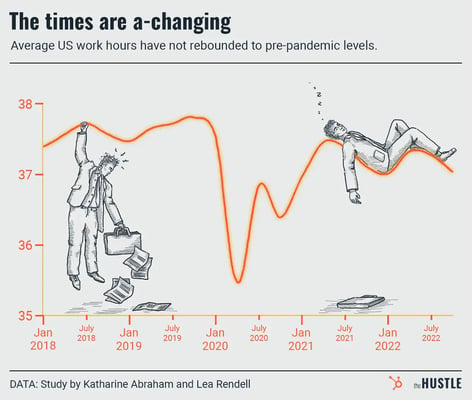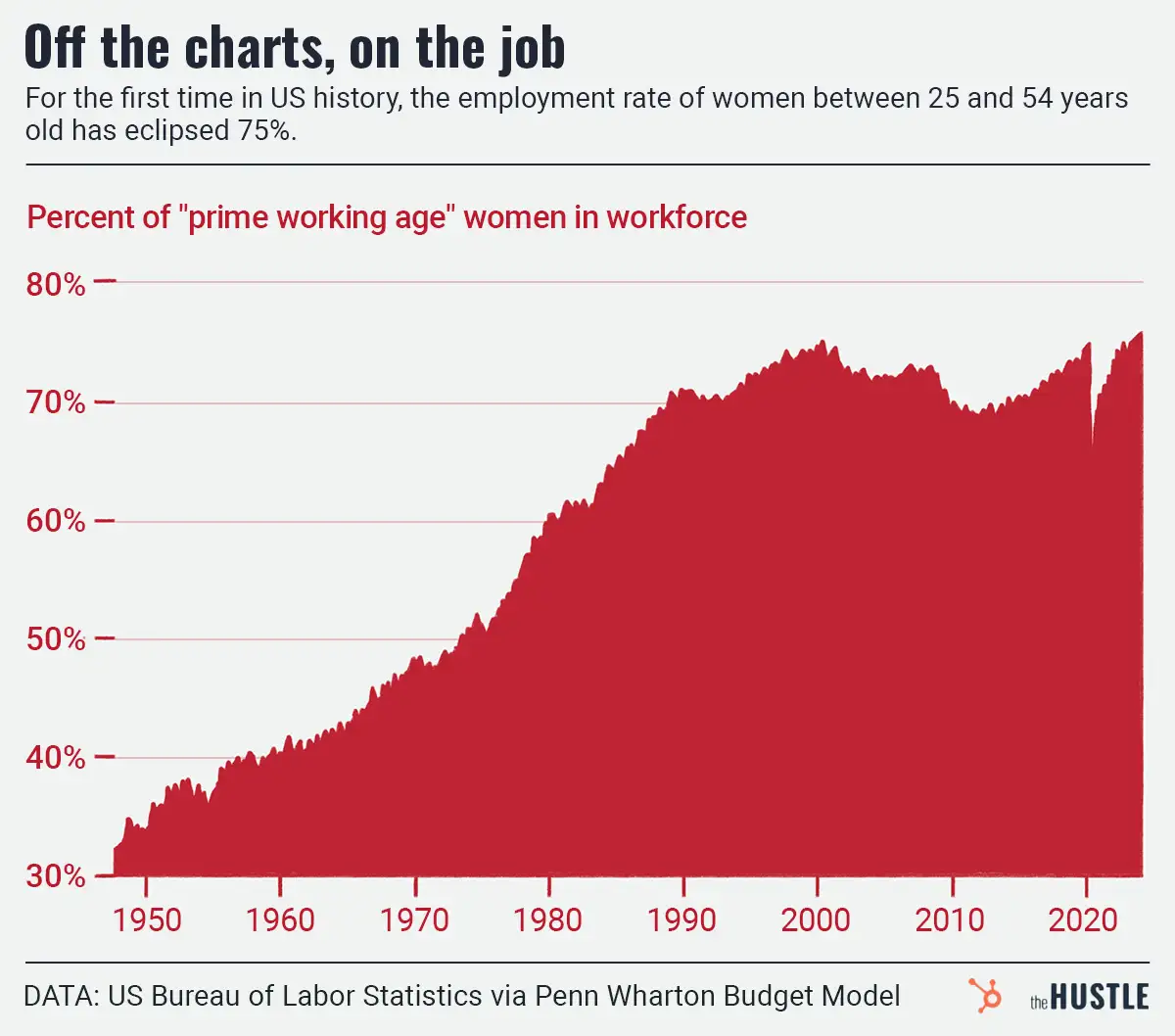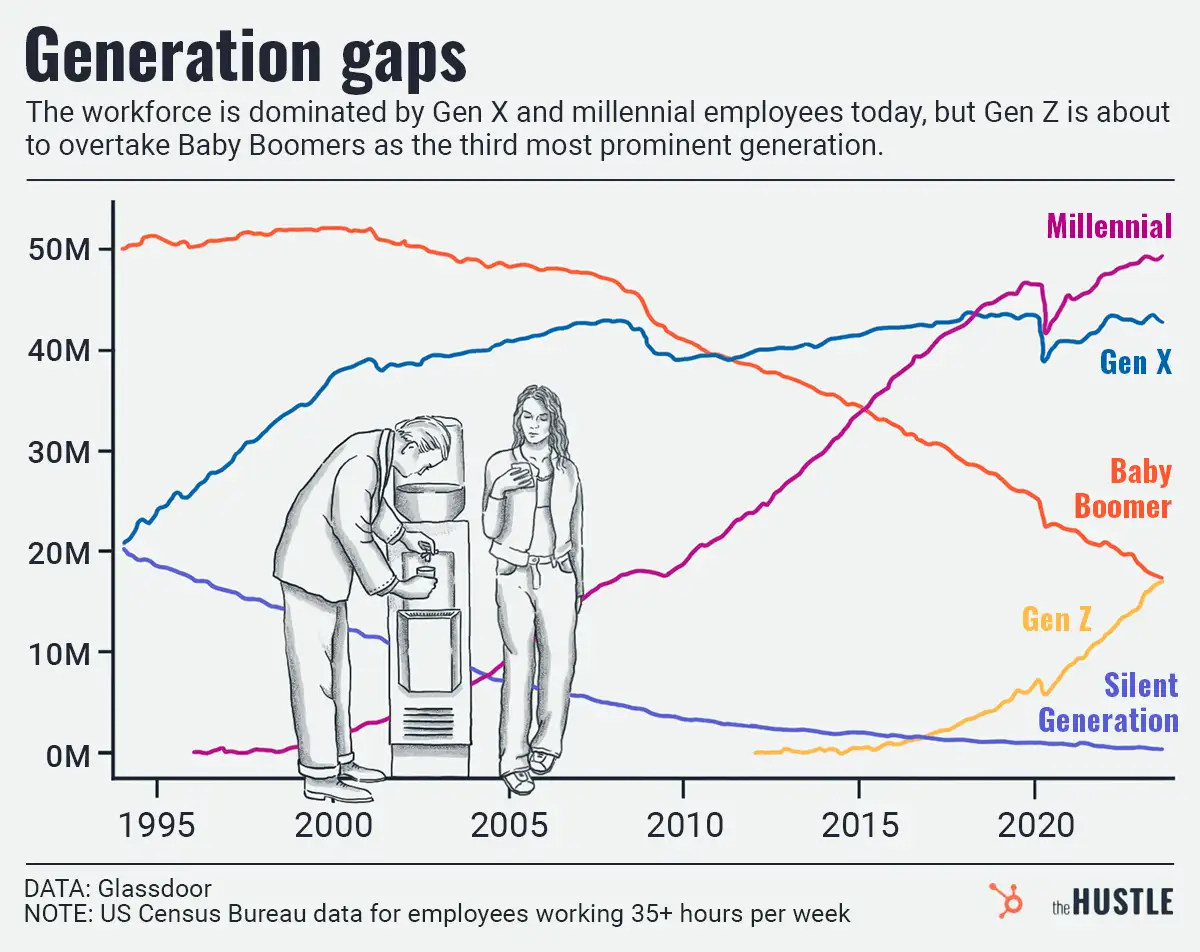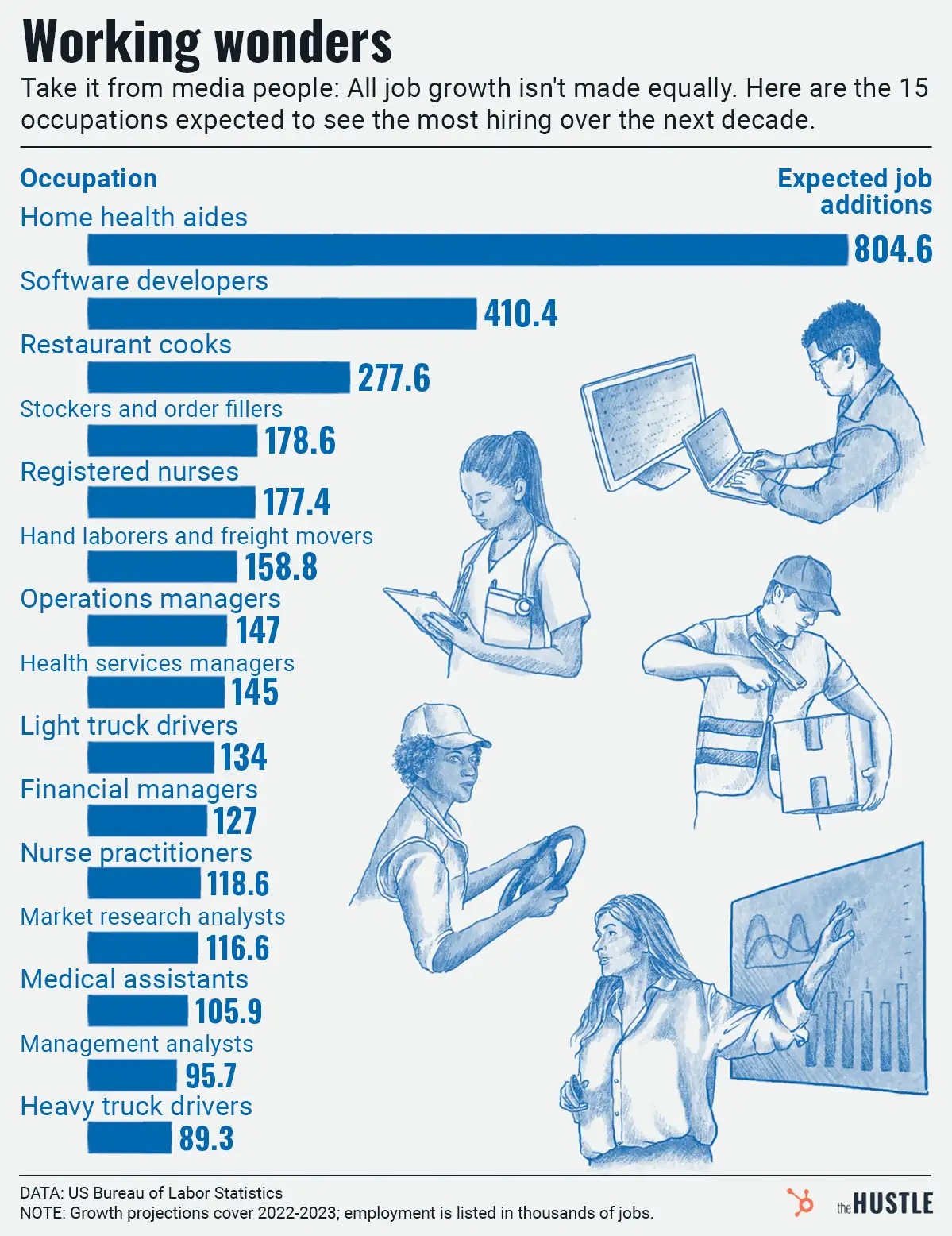Walk through any American city and ask around — you’ll quickly find gobs of people who feel overworked.

But also don’t do that. It sounds like a sad way to spend a day.
It’s clear why burnout runs rampant: US work hours are often well beyond its international counterparts. UN data shows Americans working 400 more hours — or 10 whole weeks — than Germans every year.
We’re now seeing indications Americans are catching up on slowing down.
Into the wee hours
A University of Maryland study shows average US workweeks dipping 30+ minutes since 2019. Some key figures:
- High-earning young men, no stranger to coming out on top in workplace studies, did it again — their reduction is the highest (down 1.5 hours).
- Self-proclaimed workaholics are down, too — high-hour employees dropped to a gaudy 52-hour average, from their gaudier 55.
- Employees aged 16-54 saw the biggest declines overall. Black and Hispanic employees 55+ years old saw the least change.
Unsurprisingly, the researchers suspect a pandemic-fueled work/life balance reexamination as a leading driver.
- The rise in virtual work — where it’s much easier to cut out early, not that the remote employees behind this newsletter would know — is a presumed contributor as well.
The other side
The trend’s stickiness is hard to estimate, but it’s great news for the nation’s collective mental health as long as it lasts.
Easier to estimate: how this news complicates the economy at large. The Maryland study estimated the shortening hours were equivalent to the labor of 2.4m employees.
- Per Bloomberg, that labor shortfall then heats up the job market and pressures employers to keep wages up, making the Fed’s inflation-fighting job harder.
But we’ll worry about that after we take a quick 10 weeks of vacation to uh, better relate to our German readers.










